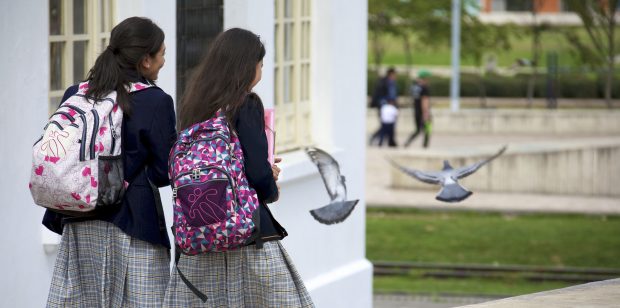
Today’s education in the media blog looks at Ofsted’s report on Rotherham Council children’s services, research published by the National Children’s Bureau, and the funding of multi academy trusts.
Rotherham Council children’s services
Today, Monday 29 January, Ofsted published an inspection of Rotherham Council children’s services. Ofsted has rated the service as ‘good’ overall, three years after the council was placed in special measures.
The publication of this report was covered on the BBC Radio 4 Today programme.
The report references the fact that Rotherham has been under government intervention since 2015 following multiple failings in children’s services. The ‘good’ judgement by Ofsted today is a significant improvement welcomed by the department.
Education Minister Nadhim Zahawi said:
I’m delighted to see the progress that has been made at Rotherham’s children’s social care, resulting in it being rated ‘good’ by Ofsted.
For too long, children and young people in Rotherham were failed by the authorities in charge of protecting them, so it is especially pleasing that Ofsted has noted the strong partnership working now in place at the council.
All those who have delivered such vast and rapid improvements in Rotherham should be rightly proud of their efforts. I look forward to them continuing to drive forward this work to make sure every child is kept safe from harm.
National Children’s Bureau research
On Sunday 28 January, the National Children’s Bureau published research which suggests that 50,000 children have gone ‘missing from education’ in the last academic year, based on responses from 136 local authorities.
The story was reported on in the Sunday Telegraph and the Times.
Local authorities and the police have powers to intervene if there is a safeguarding risk of a child being educated at home. In addition, local authorities have a duty to establish the identities of children in their area who are not registered pupils at a school and are not receiving suitable education. It is a matter for parents to decide whether to home educate their children, but they must notify schools if they are withdrawing their child for home schooling and schools have a duty to tell councils.
A Department for Education spokesperson said:
Every child, regardless of background, should have access to the best possible education.
We have changed the law so schools must inform local authorities if a pupil is taken off their register and we are due to strengthen the guidance for local authorities and parents on the roles and responsibilities of educating children at home.
Councils already have a duty to intervene if there are safeguarding concerns or if they believe children are not receiving a safe and suitable education.
Multi academy trusts
On Sunday, 28 January the Observer ran a story on its front page about the financial affairs of multi academy trusts. It reported that 6 out of the top 10 multi academy trusts have reported concerns over pressures on issues such as pay, future staffing levels, building maintenance and deficits.
The Institute for Fiscal Studies has confirmed that our additional investment in core schools funding means that across the country the total schools budget will now be maintained in real terms per pupil through to 2019-20. Schools are trusted to manage their own budgets and only a small percentage are operating with a cumulative deficit. The latest annual report shows that as of 31 August 2016, 2819 academy trusts had cumulative surpluses. We continue to provide support to schools to help them use their resources in the most efficient way.
A Department for Education spokesperson said:
Core school funding is rising from almost £41bn in 2017-18 to £43.5bn in 2019-20, and every school will see an increase in funding through the national funding formula this year. All trusts operate under a strict system of financial accountability, including the requirement to publish their audited accounts. The latest reports show that in 2016 academy trusts had a net cumulative surplus of £2.2bn.
The Education and Skills Funding Agency monitors all academies’ financial position and takes timely action whenever they identify concerns.
See our guidance for local authorities on children missing education here.